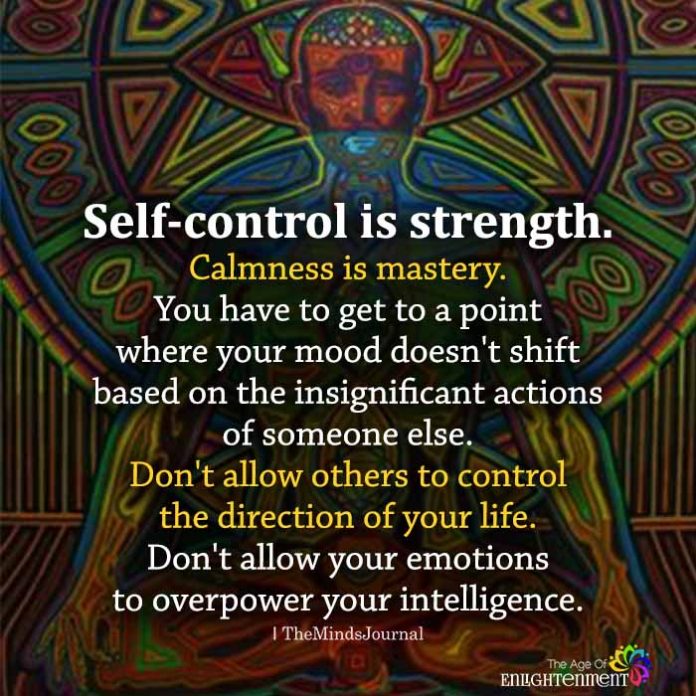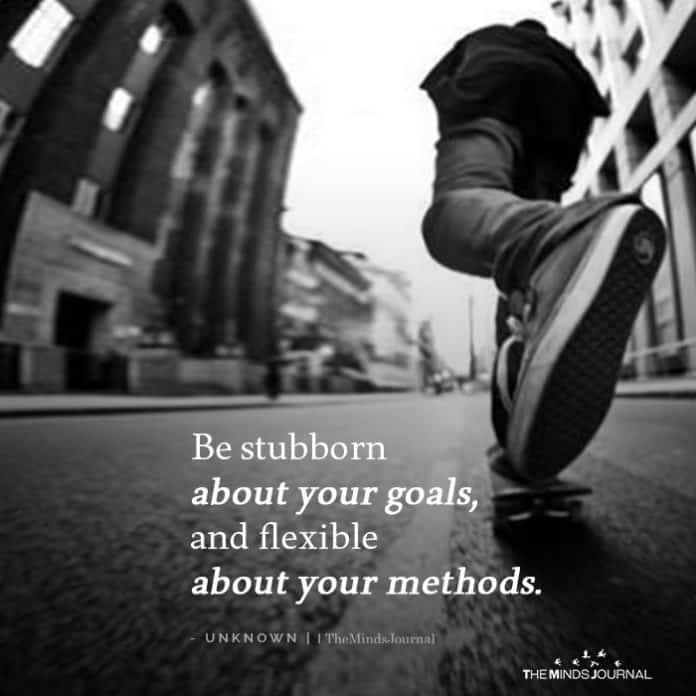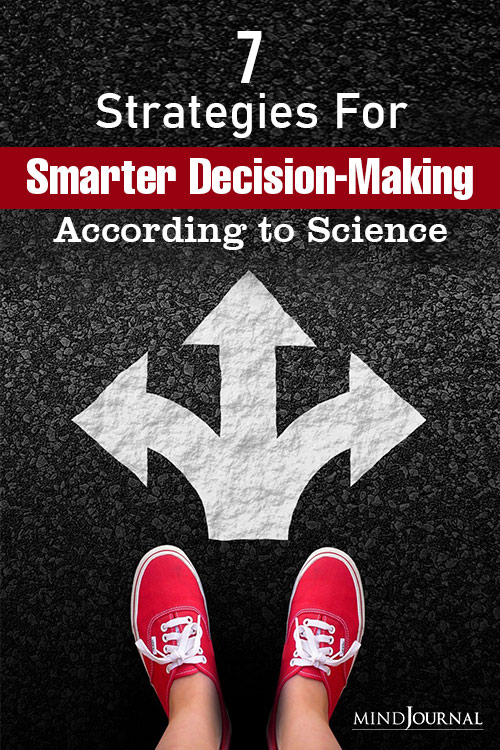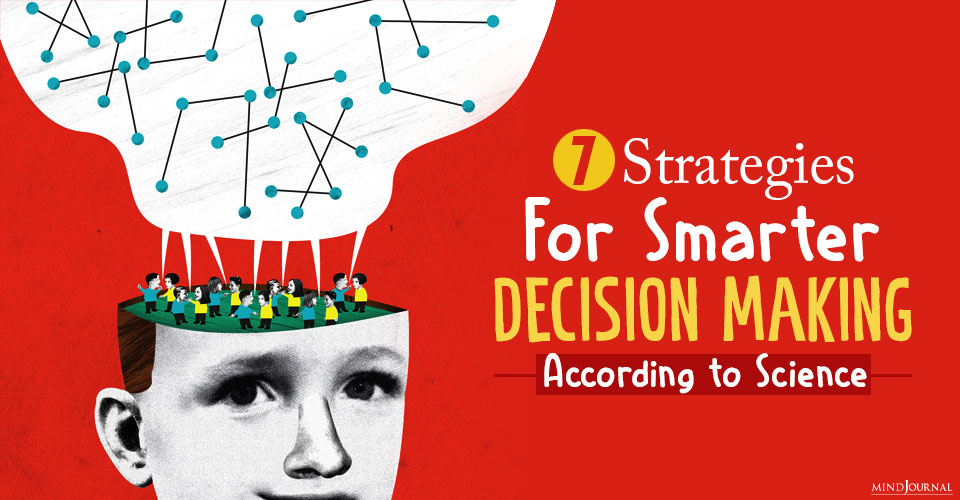A new study reveals why we act against our own best interests — and how to get ourselves back on track and make better decisions. Here’re strategies for smarter decision making and achieving your goals.
Self-control is a virtue we strive for but can feel out of reach. “There are arguably more temptations today than ever before in history,” Angela Duckworth, Ph.D., a psychologist at the University of Pennsylvania and best-selling author of Grit, shares with Thrive. “It is easier and cheaper to eat food that is bad for you, harder to find work that keeps you physically active, and almost effortless to spend your entire day on social media and binge-watching videos that don’t make you happy in the long run.”

So why is it as hard for us to exercise self-control as it is to, well, exercise? Why is it so hard to turn our “should do”s into “done”? And how can we get ourselves back on track to achieving our goals?
Her new study, published in the journal Psychological Science in the Public Interest, offers some valuable guidance. She and her co-authors survey a body of existing research that suggests that willpower, as we know it, is a misguided, and even counterproductive, way to think about self-control. She and her co-authors set the record straight on why we stray from our best intentions and offer tangible, research-backed strategies for smarter decision making that leads to meaningful results.
Related: The 90-Second Rule That Builds Self Control
So how can we get ahold of ourselves and take the reins when temptation strikes? “Not [by] more willpower,” Duckworth tells Thrive. “Instead, I recommend we use what we know about self-control to make doing what’s best for us easier, not harder.”
This starts by understanding that there’s no one-size-fits-all solution for smarter decision making and stronger self-control. There are many different strategies and approaches to choose from.
Take a minute to visualize yourself in that moment of temptation:
What else is going on?
What happened along the way that put you in this position?
What had you been thinking about that led to this juncture?
Are there aspects of your environment that are working in your favor, or against you?
Are these things you can change yourself, or that you need others’ help with?
This will help you better understand the dynamics and factors at play that lead to your lapses in decision making and guide you toward the strategies that will help you in smarter decision making and set you up for success.
Here are some science-backed approaches Duckworth proposes in the study that we can apply to our own lives. Some are cognitive, involving shifts in mindset. Others are environmental: simple changes to your home or workplace that can help keep you on track. Some are changes you can make for yourself, and some involve bringing others on board to help hold you accountable. Which will you try?
7 Strategies For Smarter Decision Making, According to Science
1. Break down big, lofty goals into smaller, more attainable Microsteps
At Thrive Global we call these Microsteps, too-small-to-fail mini-goals that research shows are more digestible and more attainable than the vague and unrealistic ideals we tend to set for ourselves. So instead of “get more sleep,” choose a specific, actionable component to adhere to, like the Thrive Microstep: “Go to bed just a few minutes earlier than you usually do.”
Related: How To Set SMART Goals for Lifestyle Change
2. Create your own commitment device
A commitment device is an easy way to get yourself to identify a goal and stick to it. Name a benchmark that you want to meet, and add some sort of penalty or deterrent that will take effect if you miss the mark.
It could be as simple as giving yourself a deadline accompanied by a penalty for being late, as psychologist Dan Ariely, Ph.D., found in one study. The penalty here is subjective, so choose something that you personally dislike and will try your best to avoid.
3. Make small environmental changes for a big impact
Sometimes all it takes is a little rearranging of your immediate domain to keep you on track, like moving enticements out of sight and out of mind or putting positive obstacles in your way. If the sight of a candy jar on the counter is too delicious to resist, try putting a bowl of fruit in front of it, or tuck it away inside a cabinet.
4. Create a contingency plan
This step, which the researchers call implementation intention, involves a little bit of planning that can go a long way. A 2010 study from NYU found the simple process of articulating “if, then” scenarios provide a game plan of sorts, a lasting association in your mind that reduces the likelihood of forgetfulness or procrastination and improves your perseverance toward your desired outcome.

5. Make a decision in advance — and stick to it
We know from research that declaring a decision in advance is a great way to help you stick to your word when it comes time to act. A recent field study found that employees who placed their lunch orders in the morning made meal choices that were five percent less caloric than their co-workers who ordered at the cafeteria and didn’t plan ahead.
6. Be mindful of your indulgences
This strategy could be particularly powerful for mindless indulgences, or cravings you don’t really notice until you’ve already satisfied them.
Mindfulness practices, like meditation, or just actively taking note of how frequently you check Facebook, for instance, can provide the reality check you need and a burst of motivation to rein in your self-control.
Related: 3 Powerful Methods To Help Create The Results You Want And Succeed Faster
7. Grab an accountability buddy
Why go at it alone when you can invite a companion along on your journey? Ask someone you trust to hold you accountable for your intentions with gentle nudges and reminders, congratulations whenever you’ve made the smart choice instead of the indulgent one, and have them check in periodically to see how you’ve been doing.
Please share this article with anyone who you may think will find it valuable and helpful.
Written by Mallory Stratton
Originally appeared on Thrive Global
Republished with permission.












Leave a Reply